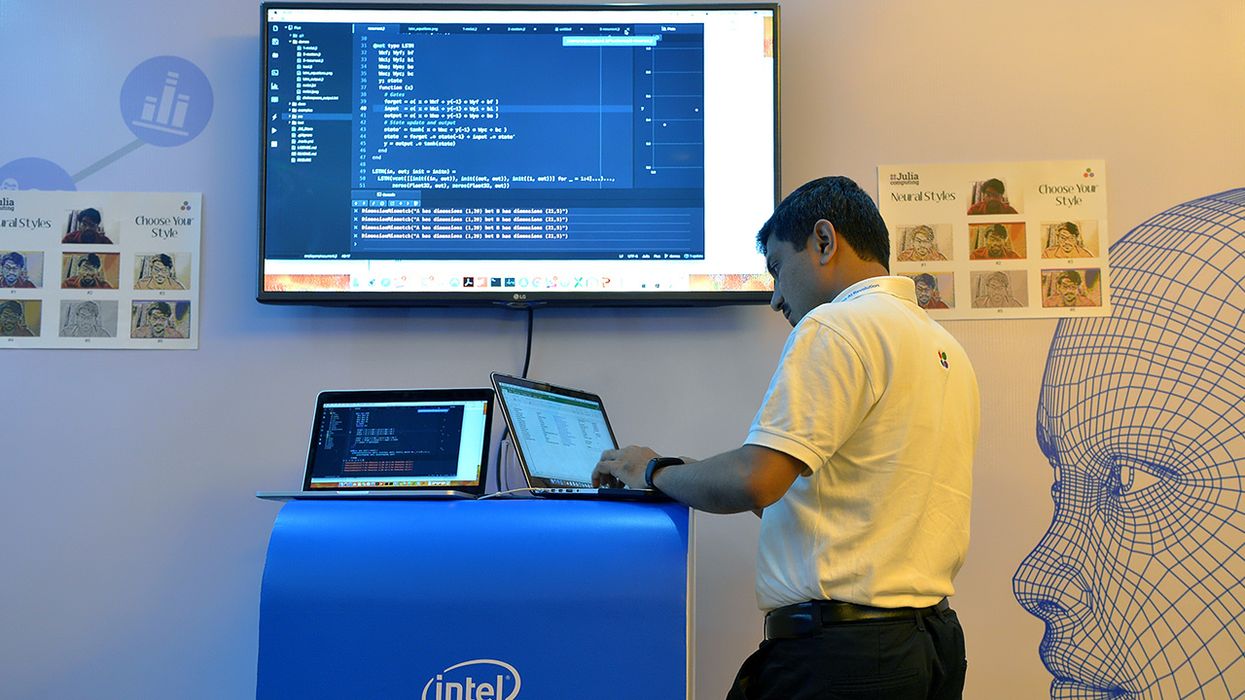
MANJUNATH KIRAN/AFP/Getty Images

Investors want savings, not people, report claims
Many companies are racing to save money by replacing employees with machines and robots, according to a New York Times report. At least that was the sentiment at the World Economic Forum's annual meeting in Davos, Switzerland.
Publicly, executives have decried the negative impact artificial intelligence could have on the workforce. But during panel discussions about the technology, executives said they are racing to implement automation. They also gave the impression that they couldn't care less about how it impacts people, the report states.
Tech executive Kai-Fu Lee, author of "AI Superpowers"believes that artificial intelligence will "eliminate 40 percent of the world's jobs within 15 years," the report stated. Chief executives are "under enormous pressure from shareholders and boards to maximize short-term profits, and that the rapid shift toward automation was the inevitable result," the New York Times reported.
The report noted that:
All over the world, executives are spending billions of dollars to transform their businesses into lean, digitized, highly automated operations. They crave the fat profit margins automation can deliver, and they see A.I. as a golden ticket to savings, perhaps by letting them whittle departments with thousands of workers down to just a few dozen.
Companies are also using buzzwords and euphemisms to gloss over what's really happening. For example, workers are being "released" form mindless tasks. Employee layoffs are being cast as a "digital transformation, the report notes.
Mohit Joshi, president of Infosys, a technology and consulting firm, told the newspaper it's all being driven by the bottom line.
"People are looking to achieve very big numbers," Joshi said. "Earlier they had incremental, 5 to 10 percent goals in reducing their workforce. Now they're saying, 'Why can't we do it with 1 percent of the people we have?'"
According to the report, a 2017 survey by Deloitte found that 53 percent of companies are already using machines to perform tasks previously done by humans. The figure is expected to climb to 72 percent by 2020.
Supporters of AI say it will simply create new jobs; and others believe it will simply allow employees to eliminate some of a job's more routine tasks. Still, most of the planning for AI is going on behind the scenes without public input.
According to the Times, several executives at Davos this week declined to say how much money they had saved by automating jobs. Additionally, none would publicly admit that getting rid of human workers is the ultimate goal.
"That's the great dichotomy," Ben Pring, director of the Center for the Future of Work at Cognizant, a technology services firm, told the news outlet. "On one hand," executives "absolutely want to automate as much as they can."
"On the other hand," he added, "they're facing a backlash in civic society."